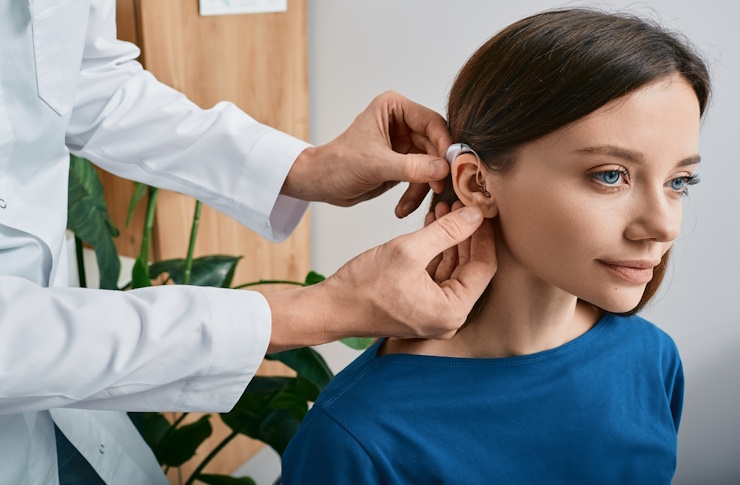Finding Hope for Tinnitus Sufferers: Exploring Modern Treatments and Lifestyle Adjustments
For those living with the unceasing hum or buzz of tinnitus, finding effective relief can seem like a frustrated venture into the unknown. But don't lose hope yet; this article, titled 'Finding Hope for Tinnitus Sufferers: Exploring Modern Treatments and Lifestyle Adjustments', may shed new light on potential pathways to relief. From advanced therapies to lifestyle modifications, we'll explore contemporary strategies that are helping to transform how tinnitus is alleviated.

What is tinnitus and how does it impact daily life?
Tinnitus is the perception of sound when no external noise is present. It can manifest as ringing, buzzing, hissing, or even music-like sounds that only the affected person can hear. For many, tinnitus is more than just an annoyance; it can interfere with sleep, concentration, and overall well-being. Some individuals experience anxiety, depression, and reduced cognitive function as a result of their tinnitus, making it crucial to find effective management strategies.
What are the most common causes of tinnitus?
Tinnitus can stem from various sources, with exposure to loud noises being a primary culprit. Other common causes include:
-
Age-related hearing loss
-
Ear infections or blockages
-
Head or neck injuries
-
Cardiovascular problems
-
Certain medications
-
Stress and anxiety
Understanding the underlying cause is often the first step in developing an effective treatment plan. In some cases, addressing the root cause can lead to significant improvement or even resolution of tinnitus symptoms.
Which modern treatments are available for tinnitus relief?
The field of tinnitus treatment has expanded considerably in recent years, offering sufferers a range of options to explore:
-
Sound therapy: Using external sounds to mask or distract from tinnitus
-
Cognitive Behavioral Therapy (CBT): Helping patients change their perception of and reaction to tinnitus
-
Tinnitus Retraining Therapy (TRT): Combining sound therapy with counseling to habituate the brain to tinnitus
-
Hearing aids: Amplifying external sounds to reduce the perception of tinnitus
-
Neuromodulation: Using electrical or magnetic stimulation to alter brain activity
-
Biofeedback: Teaching patients to control certain bodily processes to reduce tinnitus-related stress
What are the latest breakthroughs in tinnitus research and treatment?
Exciting developments in tinnitus research are paving the way for more targeted and effective treatments:
-
Vagus nerve stimulation: Combining sound therapy with mild electrical stimulation of the vagus nerve to “rewire” the brain’s response to tinnitus
-
Deep brain stimulation: Implanting electrodes in specific brain regions to modulate tinnitus perception
-
Gene therapy: Exploring genetic approaches to restore damaged hair cells in the inner ear
-
Smartphone apps: Developing sophisticated applications for personalized tinnitus management
-
Mindfulness-based therapies: Incorporating meditation and mindfulness techniques to improve tinnitus coping strategies
These innovative approaches offer hope for more comprehensive tinnitus relief in the future, though many are still in the research or early clinical trial stages.
How can lifestyle adjustments help manage tinnitus symptoms?
In addition to medical treatments, certain lifestyle changes can significantly impact tinnitus management:
-
Stress reduction: Practicing relaxation techniques, yoga, or meditation
-
Diet modifications: Reducing salt, caffeine, and alcohol intake
-
Exercise: Engaging in regular physical activity to improve overall health and reduce stress
-
Sleep hygiene: Establishing consistent sleep patterns and creating a quiet sleep environment
-
Noise protection: Using earplugs or noise-canceling headphones in loud environments
-
Avoiding triggers: Identifying and minimizing exposure to personal tinnitus triggers
Many tinnitus sufferers find that a combination of medical treatments and lifestyle adjustments yields the best results in managing their symptoms.
How do tinnitus treatment costs compare across different options?
The cost of tinnitus treatment can vary widely depending on the chosen approach and individual circumstances. Here’s a comparison of some common treatment options:
| Treatment | Provider Type | Estimated Cost Range |
|---|---|---|
| Sound Therapy Devices | Audiologists, Online Retailers | $50 - $500 |
| Cognitive Behavioral Therapy | Mental Health Professionals | $100 - $200 per session |
| Tinnitus Retraining Therapy | Specialized Clinics | $2,500 - $5,000 for full program |
| Hearing Aids | Audiologists | $1,000 - $4,000 per ear |
| Neuromodulation Devices | Medical Device Companies | $500 - $3,000 |
| Biofeedback Training | Specialized Clinics | $50 - $200 per session |
Prices, rates, or cost estimates mentioned in this article are based on the latest available information but may change over time. Independent research is advised before making financial decisions.
It’s important to note that some treatments may be covered by health insurance, while others are considered out-of-pocket expenses. Consulting with healthcare providers and insurance companies can help determine the most cost-effective treatment plan for individual needs.
In conclusion, while tinnitus remains a challenging condition, the landscape of available treatments and management strategies continues to evolve. From cutting-edge medical interventions to practical lifestyle adjustments, tinnitus sufferers have more options than ever before to find relief and improve their quality of life. As research progresses, the future holds promise for even more effective and personalized approaches to tinnitus treatment.




